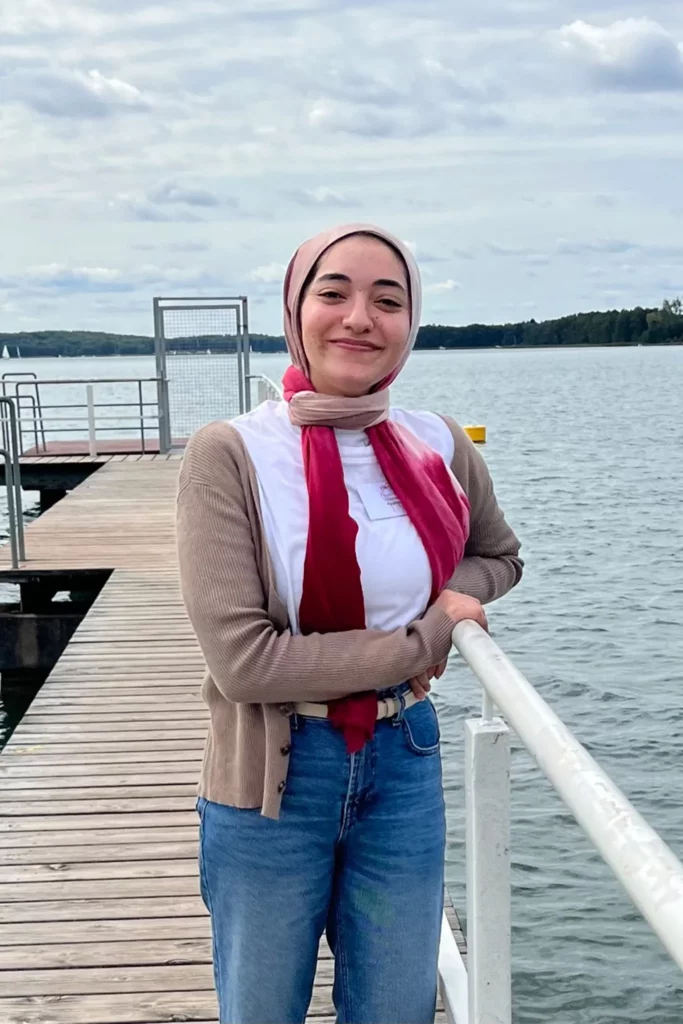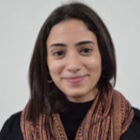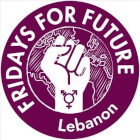About us
In the Yasmin Collective, our focus is on the medium of podcasting in and with people from West Asia and North Africa. But our commitment goes far beyond that. We use podcasts as a tool to reshape and rethink development cooperation. We show solidarity with our partners abroad and support them in their feminist and social work. In Germany, we see our task as anti-racist work and providing a platform for marginalized voices. We believe in the power of dialogue, equality and sharing personal stories to bring about positive change. Welcome to Yasmin Kollektiv, where we use podcast to create a better understanding of each other.
The Team
As a collectively organised association, Yasmin Kollektiv is responsible for the conception and implementation of projects, as well as external communication. However, if you have a question about a thematic focus or an area of responsibility, please contact the person in charge directly via their email address.
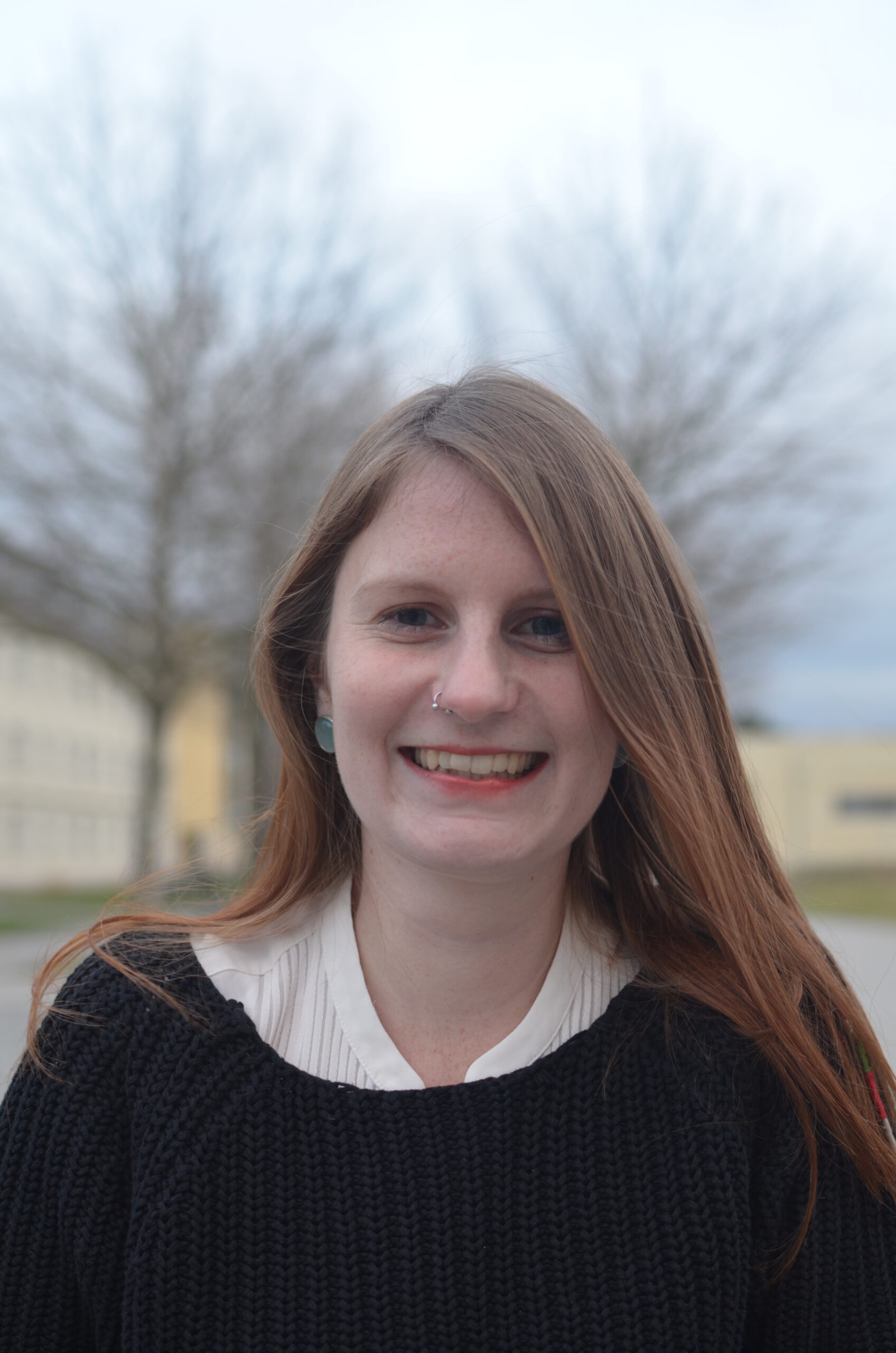
Tatjana
Position in the association: Board member
Tatjana came through her involvement with Anglo and Latin America eventually further east to the WANA region. Her experiences and encounters while living with a large Jordanian family, her flatmates in Lebanon and backpacking trips through Saudi Arabia and Oman have shaped her into the person she is today. She currently works as a coordinator in a multi-generational house and experiences the diversity of people there every day.
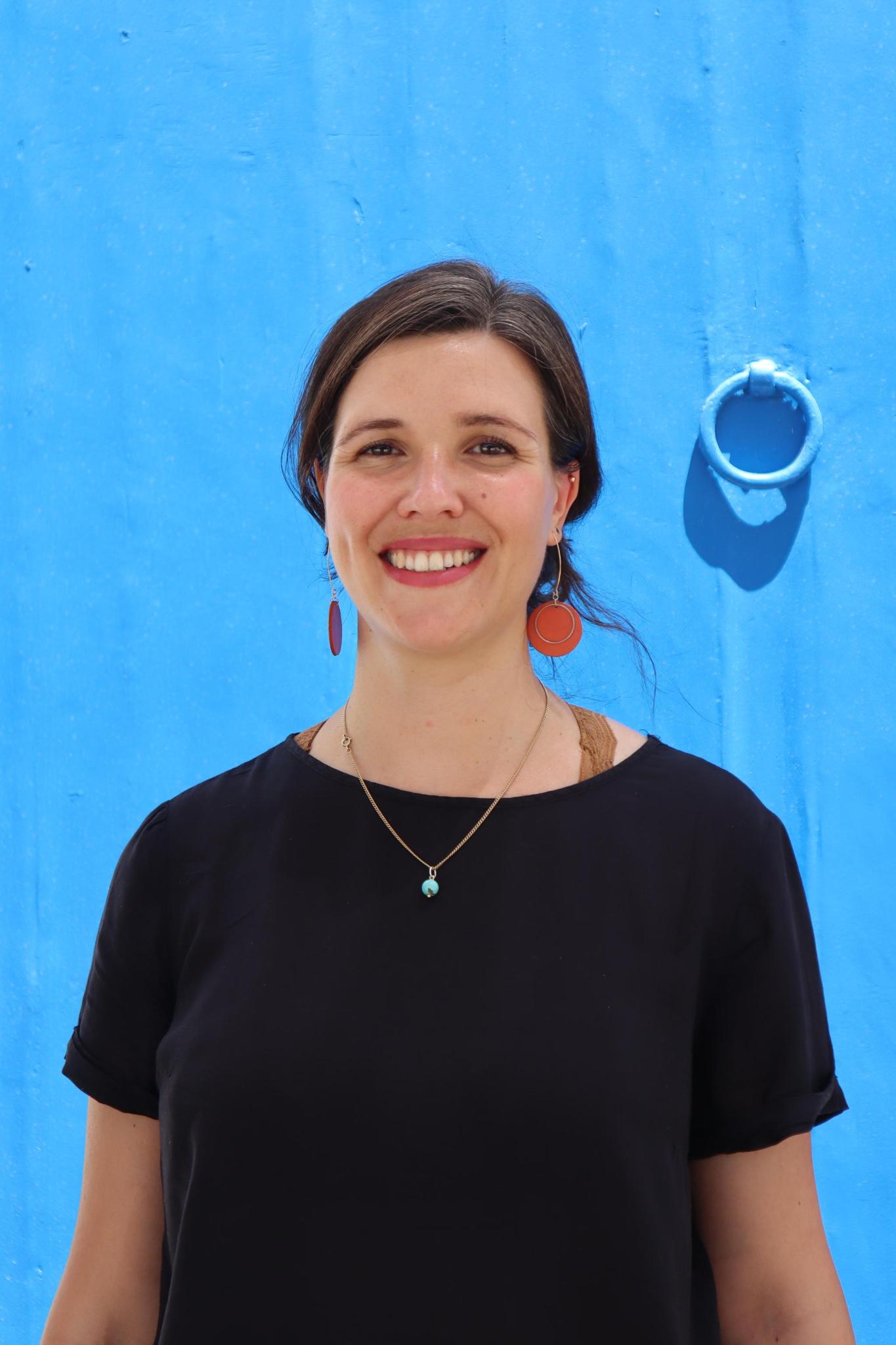
Katrin
Position in the association: Board member
Katrin studied art history, archaeology and political science in Freiburg, Jerusalem, Erfurt and Lebanon. As part of her Master's degree, she dealt with the Iraqi–Kurdish conflict in Iraqi Kurdistan and travelled to the autonomous Kurdish region of Iraq several times. Katrin is involved in various Yasmin Kollektiv projects such as the Mushtarak PodFest, fundraising, the application for Aswatona and podcast production for Nahostcast. Besides podcasting, her passion is (analogue) photography.
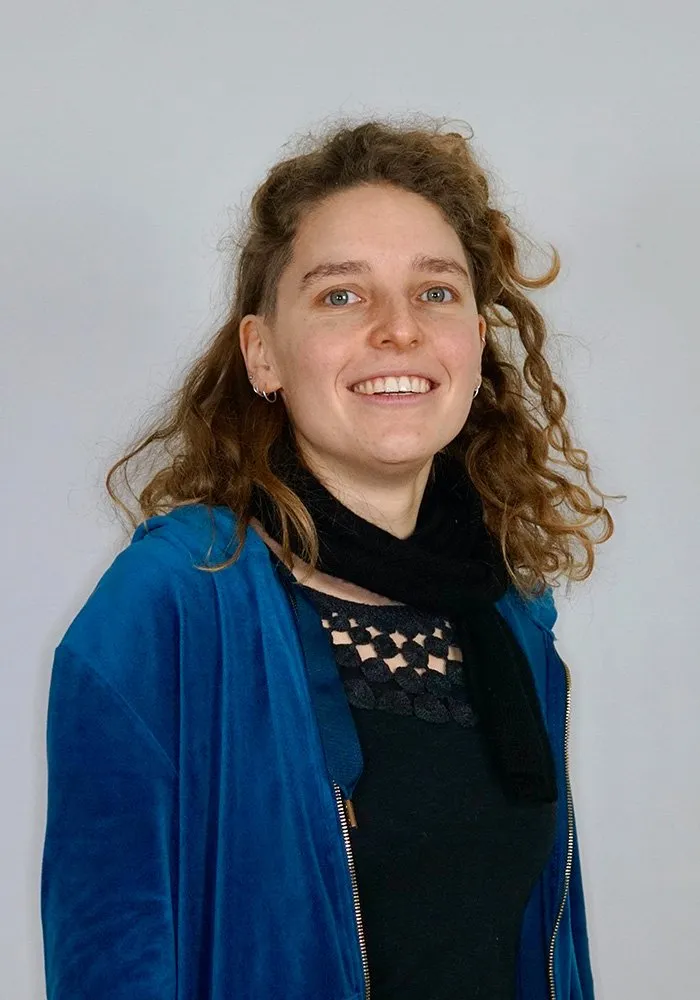
Carlotta
Position in the association: Board member
On the Corniche in Alexandria or in Tunisian Gabes, hiking in the Algerian mountains or strolling along the narrow streets of Beirut and Istanbul – Carlotta’s favorite way of discovering places in daily life or on vacation are walking and biking. Carlotta fell in love with the Arabic language after studying urbanism and has been following it ever since, from North Africa to West Asia up to the streets of Neukölln. In doing so, there is a whole lot to experience and question: lived politics, civil engagement and the role of art and culture in societies. Carlotta is fascinated by life in cities in West Asia and North Africa and more topics beyond that. She is particularly interested in the civil society perspectives of women and queers. She likes to walk their paths and meanwhile sets out for new perspectives with systemic therapy work.
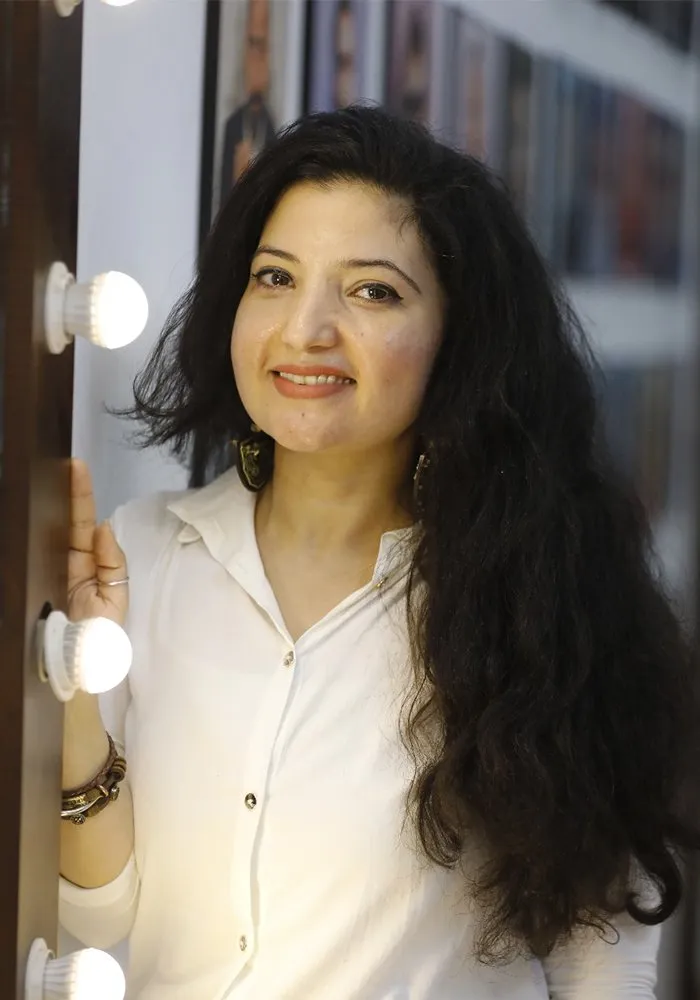
Rasha Aldeeb
Position in the association: Board member
Rasha took training from December 2014 to January 2016 to become a podcaster. After that, she worked as a producer for various podcasts. She was the first podcaster in Egypt to focus on feminist issues. Together with Yasmin Kollektiv, Rasha wants to support women in the WANA region in expressing their voices through podcasting and storytelling. Some of the podcasts she has produced are Teh Marbota podcast, black box, jasmin aroma, story about them, she has voice, Al walkman, Wams application, Al podcast, mkany mkank with the Robert Bosch Stiftung foundation and Lamtna in cooperation with Care International. In 2023 Rasha and Katrin organized the Mushtarak PodFest. It was the first podcast festival in Egypt and a huge success.

Julia
Position in the association: Financial auditor, Board member
Julia has studied journalism, politics, sociology and history of the Middle East, among others in Morocco and Lebanon. For her master thesis she travelled to Egypt and interviewed foreign correspondents and their mediators about their work. She lives in Beirut and reports as a correspondent for the taz and Deutschlandfunk– especially about urban culture, gender and matters of social justice in Lebanon and the WANA-region.
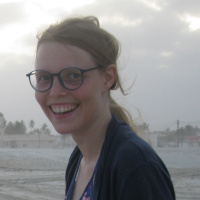
Svenja
Position in the association: President
Svenja has studied history and cultural anthropology in Mainz and has been to Jordan, Lebanon, Egypt, Oman and Saudi Arabia. During her stays in the Middle East she has particularly grown fond of regional cuisine, which she has tried out herself many times. By now she can make a Fatteh al hummus that has earned the label “really good” by some Syrian friends (the highest title achievable!). By now, she tries to pass on these experiences and curiosity about the WANA-region as intercultural trainer in the Rhine-Main region.

Immanuel
Immanuel studied history and then became an educator. He is currently studying to be a primary school teacher. During his studies, Immanuel gained a lot of experience in building up associations and its activities. His historical studies connect him with the WANA region, as does his affinity for Lebanese cuisine.
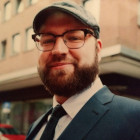
Hannes
Hannes is a very passionate teacher at a comprehensive school in Berlin, who also likes to bring up discussions about the Middle East conflict in the classroom. He shares our love for Lebanon - but in terms of cuisine, he loves the entire WANA region. However, when it comes to Levantine cuisine, his skills certainly cover the whole region. Besides being a source of constant inspiration and support, Hannes is also our dubbing artist and is now an active member of Yasmin Kollektiv.
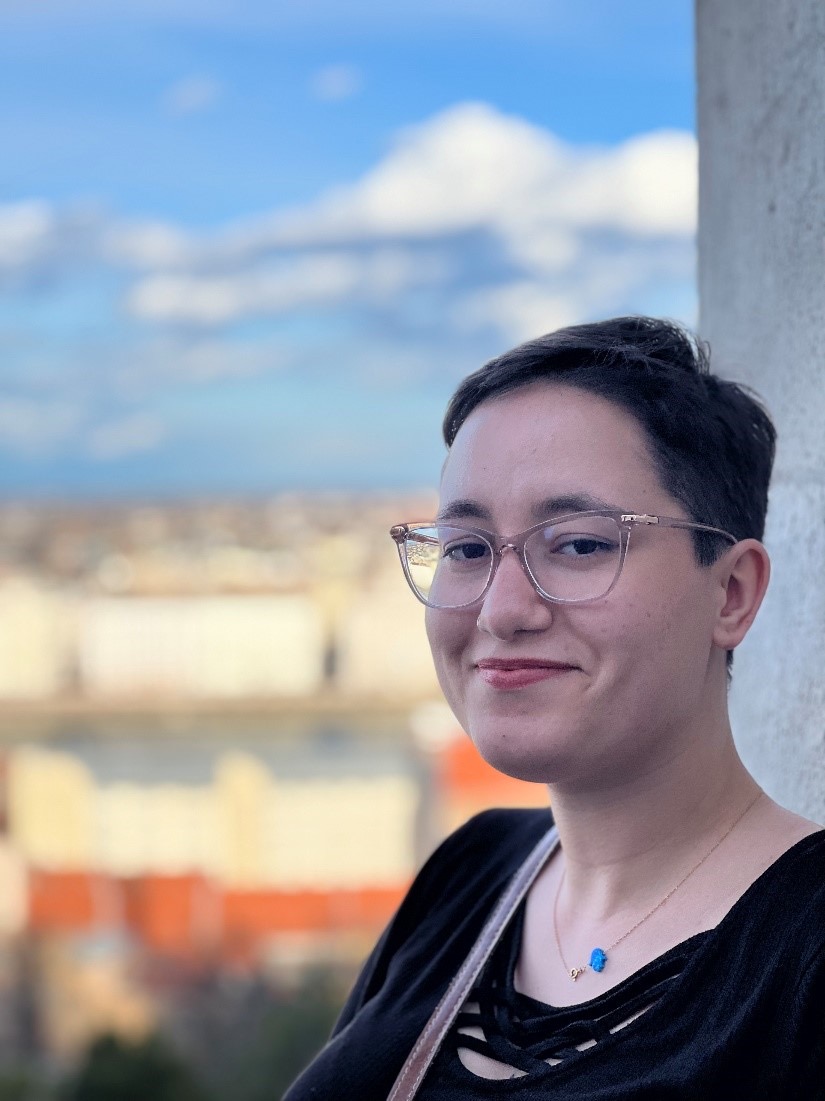
Hajar
Hajar, a passionate Moroccan podcaster deeply intrigued by Culture, Anthropology, and Jewish studies, embarked on a journey that led her to pursue a Master's degree in Comparative literature in Agadir. Fueled by wanderlust and an insatiable curiosity, she made the bold decision to work remotely while traveling extensively throughout 2022. The highlight of her trip was backpacking across Egypt and earning her advanced diving license. She was among the first participants in the Aswatona program, which she considers the best network to be a part of. Currently, she resides in Poland, eagerly seeking fresh opportunities for learning and personal growth.
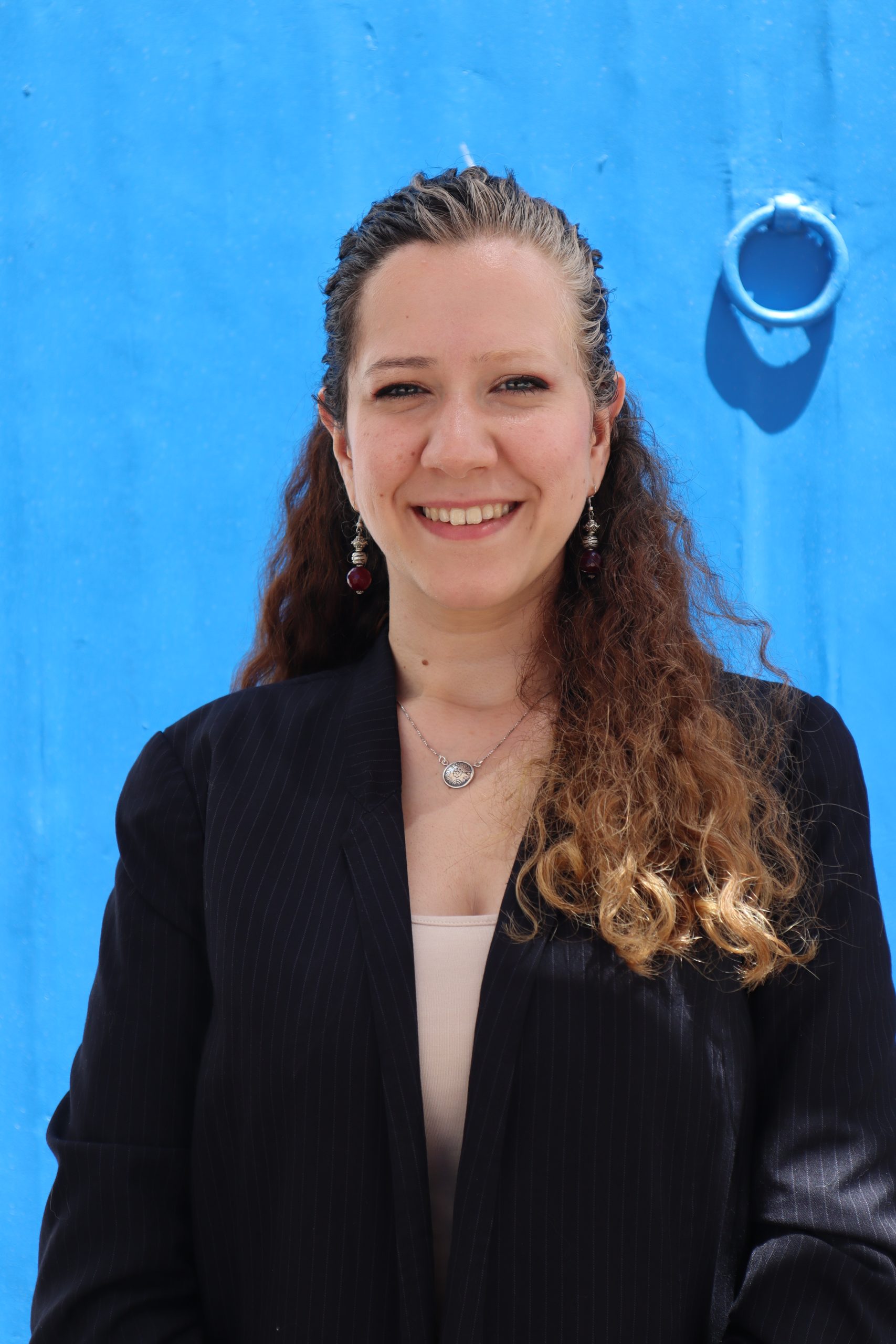
Sabreen
Position in the association: Board member
Sabreen is a journalist, producer, and storyteller from Jerusalem, with over a decade of experience in creating compelling narratives and building remarkable productions. Holding a Master’s degree with a Fulbright scholarship from the New York Film Academy in Los Angeles, California, and a Bachelor of Arts degree from Birzeit University, Sabreen has collaborated with prestigious media networks like Reuters, Al Jazeera, Sky News, and many others. Passionate about storytelling, Sabreen excels in overseeing every aspect of production, from conception to execution, and is always eager to collaborate on new ideas to bring captivating narratives to life.
Our history
Aswatona enters a second major round and Yasmin Kollektiv provides an 8-member project team. Here, former participants will be involved as mentors for a new cohort of young aspiring podcasters and a training of trainers will follow.
In the meantime, we are starting many other podcast projects and trainings - read more about them under Our Projects .

Our team together with MitOst e.V made the project Our Voices - اصواتنا (Aswatona) happen. The Aswatona project is funded by the German Federal Foreign Office and aims to network Arabic-speaking podcasters in North Africa and West Asia to develop a transnational podcast format with a strong community.

In order to broaden our activities and to reach a longterm funding of our project, we founded our own association Nahostcast e. V. on the 20th of February 2020.
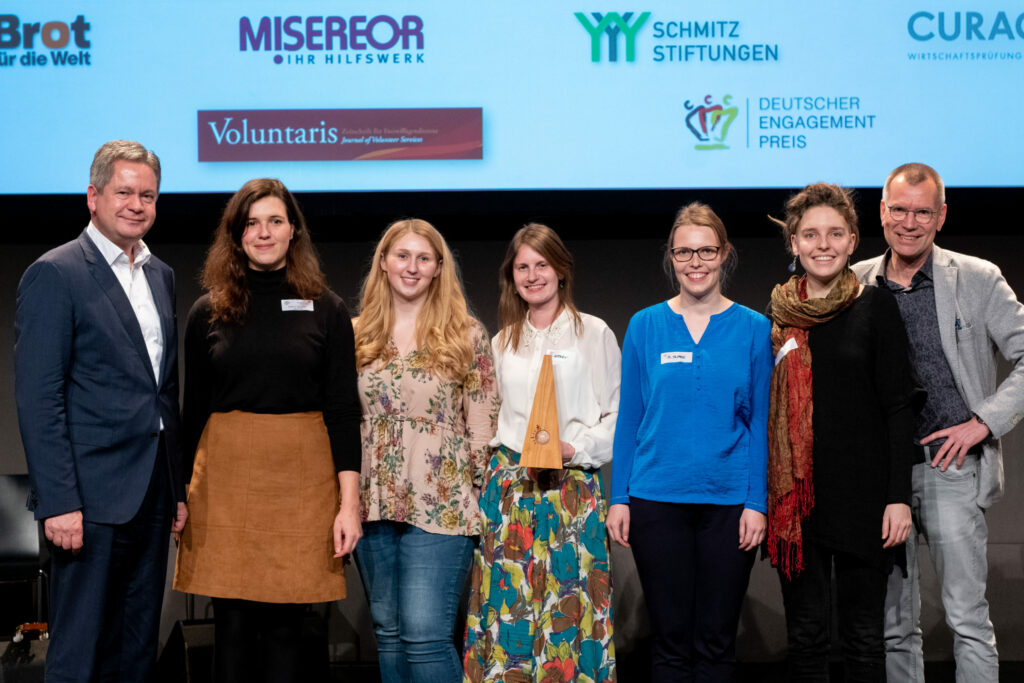
After a successful nomination within the category FAIRMitteln (wordplay of fair and convey) we win the award of the Karl-Kübel foundation in Frankfurt. The award highlights unique engagement in the field of development policy.
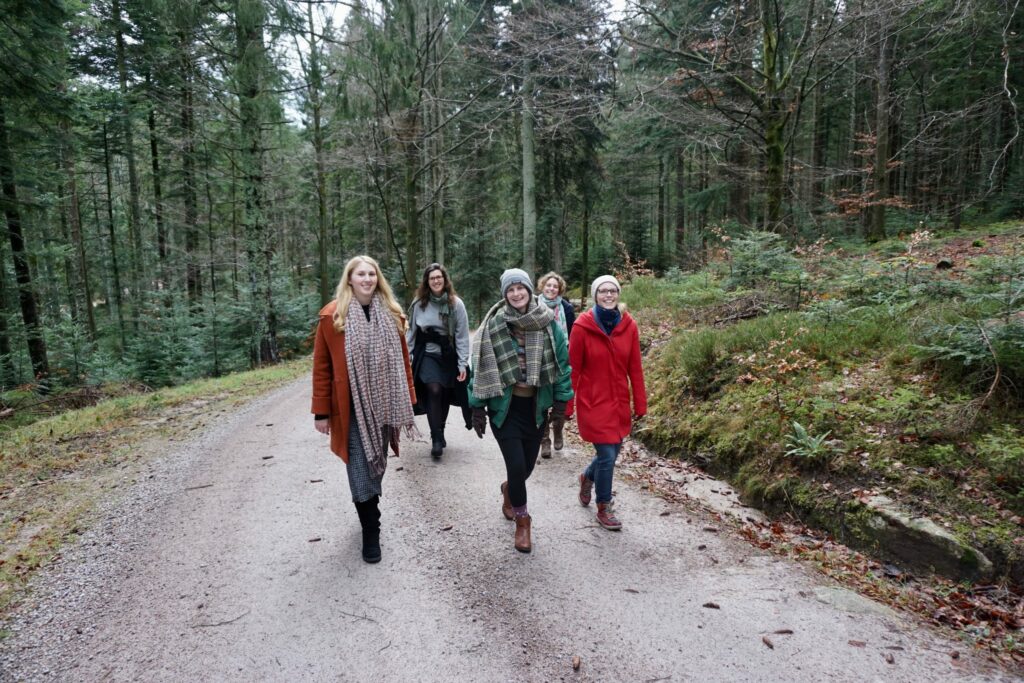
Shortly before Christmas we meet up altogether at a cozy place in the middle of the Black Forest. A lot has happened in the past half year and the new year awaits us with a whole new topics and podcast episodes.
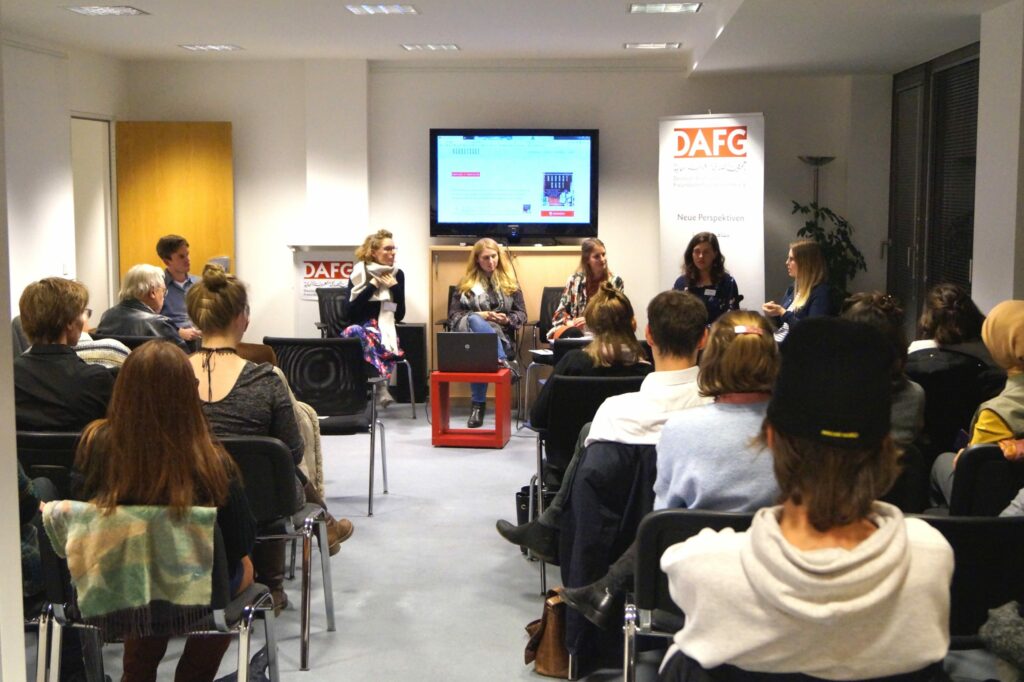
The DAFG invited us to our first public presentation and discussion about our podcast. Thank you to all attendees and the amazing feedback we received!
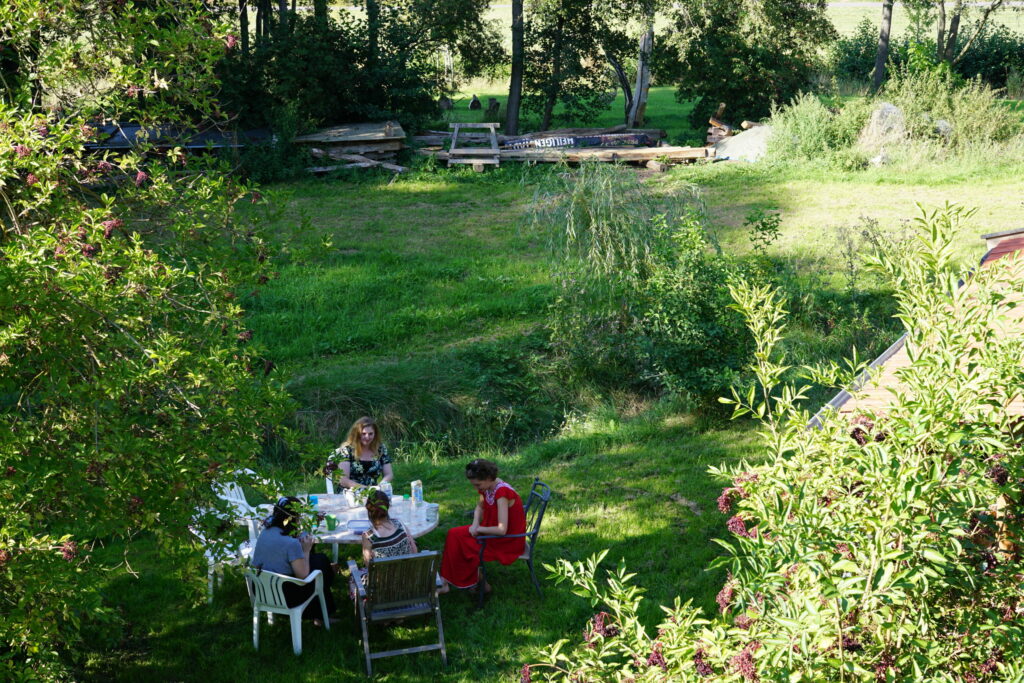

Our Fellows

Linda
Linda’s love for the WANA-region was sparked some years ago with an Arabic language course during her anthropology studies. At this time, she realized the beauty of the language, but also how less she actually knew about the cultural realm. Since then, she tries to grab every opportunity to gain a better understanding of the region’s history and diverse cultures. This way led her to the Middle and Far East to Erfurt, Beirut, Jerewan and the Kirgisian Osch. As a co-founder of our association, she has also played a decisive role in developing our projects.
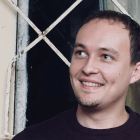
Robin
As co-founder of Nahostcast, Robin is the greatest language lover in our group and therefore our first point of contact for any Arabic perks. However, he seldom focuses on one language at a time – right now he is really passionate about Turkish. He also appears as a guest in our podcast to analyze with us the situation of Syrian refugees in Turkey and the political climate in Kurdistan.
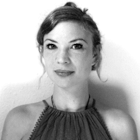
Stella
Stella is a PhD candidate at the Orient institute and researches on the relation between the former GDR and the states of the WANA-region. In the name of research, she had already during her master’s dived into the Beiruti rush hour and talks with Nahostcast about her experiences and observations of taxi drivers.
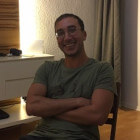
Amine
Born and raised in the Tunisian Sfax, Amine knew from the beginning that he wanted to see more of the world, see and learn about other languages and cultures. So once he had his medicine studies packed up, he followed the call of skilled labor shortage in Germany, ending up in idyllic Thuringia. With Nahostcast he talks about his experiences as assistant doctor here, but also his passion for great beer and sausage.

Salwa
Salwa is born in Casablanca, a port city on the Westcoast of Morocco – now she is dedicated to the fields water engineering and management of ressources. With regard to the protection of environment, she started living out her creativity in form of a childrens‘ book. Aside from that, she is always in for a discussion about feminism and politics.
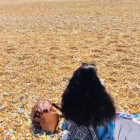
Ayşê
Ayşê currently explores Berlin to live, work and study. What she likes most is to drip and drop with paint or pluck the strings of her beloved Tembûrs. After trying out different political organisations and a formative Tunisia trip, she found her way to the Management Board of dis:orient e.V.. But , what the hell is (dis)orientalism?“
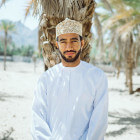
Hamed
Hamed comes from a small village in Oman called Samail and the Omanis actually pronounce it as "smile“. Through his father's profession as a police officer, he had already as a child moved around a lot and discusses with us now the development of the sultanate. His message? "Many people have probably never heard anything about this country, but I am sure the world can learn a great deal from the Omanis and its sultan in what regards a peaceful living together. Everyone of us can contribute in order to create a more peaceful and friendlier place.”

Lydia
Lydia painfully realized how less she actually knew from the world after her school and university years, so she packed her backback and took off. She is still underway, but also rooted at home by now. With Nahostcast she talked about her transnational theatre production "the naked good life“ and the role of theatre in political upheavals in the Arab world.
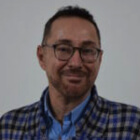
Sami
Sami is a Lebanese writer, poet, componist and visual artist, who lives in Beirut. At the beginning of the 1980s he studied at the London School of Film, between 2000 and 2016 he became the musical designer and director of the cosmetic brand MAC. Last year he even published his memoires called ‘Heal the Boy’. At the moment, he works on a third book of fiction as well as a second album, which should be published this year. In Nahostcast he enters a debate on the role of music and art in the Lebanese revolution.

Tom
Tom is originally from the U.S., but married to a Lebanese and has lived and worked as a music teacher in Beirut for over 20 years. In 1994 he was appointed professor at the Lebanese music conservatory and at the same time gives the saxophonist in the Lebanese philharmon orchester. Above all that, Tom is also a passionate activist in Beirut: For many years he furthers his own campaign, demanding to reform the nationality law from 1925 – the law refrains his daughter from receiving the Lebanese nationality of her mother. Even though she is born in Beirut and spent her whole life there. With us he joined the discussion on the role of music and art in the Lebanese revolution.
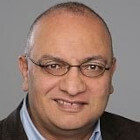
Prof. Omar Kamil
Prof. Omar Kamil is a substitute professor at the University of Erfurt for history of Westasia, who specializes in Jewish and political cultures in the region. He recorded a small peace of remembrance culture for us on the „8th of May 1945 – remembering the massacre of Sétif, Algeria.”
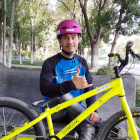
Asghar
Asghar has founded the organization ‘Drop and Ride’ in Kabul, Afghanistan, in 2016: “Drop” – to lay down your weapon – and “Ride” – to pick the alternative and take off with your bike instead. The association came forth from an initiative of young people that wanted to bring social problems to the forefront via sports and now enables sports activities for both boys and girls. Drop and Ride tries to create a safe space for activities, exchange and education for the youth of Kabul. By now the club has 50 members and has become a very important and unique offer in a crisis shaken city like Kabul.
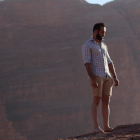
Wais
Wais also comes from Afghanistan, although he was born as a refugee in Pakistan’s Peshawar due to the Afghan civil war. Shortly before the Taliban took power, his family managed to flee to Germany. Yet decades later, he is still haunted by the events, since his life has been and is still very much shaped by it. Today, he feels closer to the region Westasia and North Africa then ever and connects with it through the association dis:orient. Now and then, when he wants a pause from the WANA-region, he prefers to be active with sports or likes to spend time with family and friends, where he can zone out the best.
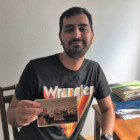
Keivan
Keivan hit the road from Teheran to Greek Thessaloniki for his master studies. In his free time he loves playing basketball, to indulge in drawing and enjoys conversations about Persian history and Lord of the rings. With us he talked about daily life in Teheran and how private and public spheres influence peoples‘ lives in Iran.

Seyran
Seyran lived for six years under war conditions in the Syrian-Kurdish city of Afrin until she came to Germany in 2018. She has been living in Berlin for a year and is studying for a Master's degree in chemistry. Besides Kurdish and Arabic, she also speaks English, German and some Turkish. Furthermore, she is interested in politics, human rights and especially women's rights. Her dream: a cup of coffee on a moonlit night in a world without biological, political and nuclear wars.

Guljan
Guljan originally from Uzbekistan and has now been living in Berlin for seven years. She devotes most of her energy to exploring European civil society and social entrepreneurship worldwide. She enjoys talking about Central Asia, its identity and the internal transformation processes in Uzbekistan.

Malte
after previous stops in Berlin and Hamburg, Malte is currently located in Southeastern Germany and very busy crafting boats. However, he is also quite familiar with Istanbul’s hills and narrow alleys. For Nahostcast he lent us his voice for some dubbing work, such as a discussion on the Omani sultan.
Bylaws
The association is founded on February 20th, 2020 by alumni of different study background with a common interest in history, politics and society of North Africa and West Asia. The image of these contrasting and diverse regions and countries is often of a negative kind or exoticized in Europe. In the sense of building brides, the association strives to counteract “oriental” stereotypes and to dismantle colonial power structures. We consider personal talks with our environment and experts as well as the exchange of ideas as most relevant. This way, the members of the association will try to critically question their own positions, ideas and assessments and not to talk ‘about’ the Middle East, but to rather enter into a dialogue with people from the region.
(1) The name of the association is “Yasmin Kollektiv”. It shall be put down in the register of associations.
After registration the name will be “Yasmin Kollektiv e. V.”.
(2) The registered office of the association is in Hochheim.
(3) The fiscal year of the association is the calendar year.
(1) The Association shall exclusively and directly pursue charitable purposes within the meaning of the section “tax-privileged purposes” of the tax code.
The purposes of the Association are:
a) The promotion of an international spirit, tolerance in all areas of culture and the idea of international understanding
b) The promotion of public education
c) Promotion of development cooperation
(2) The purposes of this statute shall be realized in particular through:
a) the initiation and promotion of projects, events, workshops and initiatives, which deal in the broadest sense with the regions of West Asia and North Africa, with the aim of carrying out anti-racist work, to break down stereotypes and colonial power structures, and to stand up for a diverse, tolerant and feminist society; to exchange content about the history, politics, society of Germany and the regions of North Africa and West Asia within the framework of lectures, talks, panels and publications, as well as the promotion of encounters between Germans and foreigners and the support of foreign guests in Germany, in order to provide young people in particular access to political discourse, to show up new perspectives and to promote joint dialogue;
b) political education and mediation activities and the development of skills that enable members and outsiders to form their own political opinion, to create political perceptiveness and to promote a sense of political responsibility. For this purpose, educational events, school projects, conferences and roundtable discussions will be organized, online and print media are disseminated free of charge and partnerships with other tax-privileged associations, offices, universities and similar institutions are initiated, with the aim of promoting the democratic principles as well as the networking of the members with experts and the public;
c) the realization of thematic and regional cooperation programs for multidisciplinary exchange in the sense of critical and postcolonial reporting; as well as the realization, support and accompaniment of educational projects for the development of society in countries that are not in a position to do so on their own or through the usual international exchange
(3) The funds of the Association may only be used for the purposes set forth in the Articles of Association. Members shall not receive any benefits from the funds of the Association.
(4) The association is selflessly active, it does not pursue its own economic purposes.
(5) Individual persons shall not be favored by expenditures that are alien to the purpose of the association, or by disproportionately high remuneration are expressly excluded.
(1) A distinction is made between active and supporting members. It is up to each member to decide which type of membership he*she chooses. The type of membership must be notified to the board.
a) Active membership is open to anyone who wishes to support the work of the association with his *her own abilities to actively support the work of the association. Active members are entitled to vote in the general meeting.
b) Supporting members can be any person who would like to support the efforts of the association financially, without necessarily participating actively in its work. Supporting members are regularly informed about the activities of the association. They are not entitled to vote in the general meeting.
(2) The change between active and supporting membership must be declared in writing to the Board and to be decided by the General Meeting.
(3) Members are entitled to participate in the events of the association within the scope of the association’s purposes.
(4) The members pay an annual membership fee. The amount of the membership fees, the due date, the method of payment as well as additional fees, in particular in the case of default of payment or use of a method of payment other than that provided for in the contribution rules, shall be governed by the declaration of membership.
(5) The Executive Board shall be authorized to defer, reduce or waive dues upon justified application.
(6) By disclosing their e-mail address, members declare their willingness, subject to express objection, to receive invitations to general meetings and events as well as to receive information.
(7) All other matters shall be regulated by the Rules of Membership to be adopted by the General Meeting.
(1) Any natural or legal person who has reached the age of 18 may become a member of the Association.
(2) Active and supporting membership is acquired by written declaration of membership and acceptance by the board of directors.
(3) There is the possibility of honorary membership according to § 10.
(1) Membership shall be terminated by death, exclusion, deletion from the list of members or resignation from the association.
(2) Resignation shall be effected by written declaration to the Board of Directors, whereby the notice must be received by the end of the calendar year. An obligation to pay overdue dues is not cancelled by the termination.
(3) A member may be deleted from the list of members by resolution of the general meeting if, despite written reminder and announcement of the deletion, is in arrears with the payment of membership dues in the amount of two annual dues.
(4) If a member culpably and grossly violates the interests of the association, he*she may be excluded from the association with immediate effect. The exclusion is decided by the general meeting, whereby a majority of three quarters of the votes is required.
b) Acceptance of the report of the auditors;
c) Discharge of the Executive Board;
d) Election of the presidents;
e) Election of the treasurer;
f) To take note of the financial plan;
g) Amendments to the Statutes;
h) Resolution and amendment of the Rules of Procedure of the General Assembly;
i) To resolve and amend the Rules of Contribution;
(3) The ordinary General Meeting shall be convened at least once a year by the board. Members who have deposited an e-mail address with the Executive Board receive the invitation by electronic mail. Proof of the timely and proper invitation is the dispatch of the invitation to the last address known to the Association.
(4) Members shall be invited in writing, stating the agenda and giving at least two weeks’ notice.
(5) The general meeting can be held as a presence meeting or as a virtual general meeting. The virtual general meeting shall be held by dialing in all participants to a video or telephone conference. A combination of meeting and virtual general meeting is possible by giving the members the opportunity to participate in the face-to- face meeting via video or telephone conference. The Executive Board shall decide on the form of the general meeting and communicates this in the invitation to the general meeting.
(6) The general meeting shall be chaired by the chairperson or, if the chairperson is unable to attend, by the deputy chairperson.
(7) Every general meeting convened in accordance with the statutes shall constitute a quorum regardless of the number of members present. Each active member has one vote. The right to vote is not transferable.
(8) The general meeting passes its resolutions with a simple majority of the valid votes cast, unless the statutes provide otherwise. Abstentions are considered invalid votes. A tie vote shall mean rejection.
(9) Amendments to the Articles of Association require a two-thirds majority of the valid votes cast. Amendments to the purpose of the association require a three-quarters majority of the valid votes cast. Emergency motions to amend the Articles of Association are excluded. Proposals for amendments to the Articles of Association that are not on the agenda shall be dealt with at the next general meeting.
(10) In the case of a virtual general meeting, resolutions shall be passed by voting via the Internet.
(11) The general meeting shall elect a chairperson. A protocol of the general meeting has to be written, which shall be signed by the chairperson and the secretary.
(12) At the request of a member, votes shall be held in secret and in writing.
(13) An extraordinary general meeting is to be convened by the board if this is necessary in the interest of the Association or if 10% of the members request it in writing, stating the purpose and the reasons. Extraordinary meetings are held in principle as virtual meetings.
(14) Everything else is regulated by the rules of procedure decided by the general meeting.
(1) The board of directors of the association consists of two presidents, the treasurer, and four assessors.
(2) The board manages the business in the sense of the statutes and the resolutions of the General Meeting. The board has a quorum if at least three of its members are present. It passes its resolutions by simple majority. The board shall order and supervise the affairs of the Association and shall report to the General Meeting about its activities. The board of directors is entitled to appoint committees for specific purposes. It may issue binding regulations.
(3) The Board is elected by the General Meeting for a period of two years. However, it shall remain in office until a new Board has been elected. Re-election is permissible.e) At the request of a member, elections of persons shall be held by secret ballot and in writing.
f) Only members of the Association may be elected as members of the Board.
g) With the termination of membership in the Association, the office of a member of the board ends as well.
(1) Officers, members and employees of the association shall be entitled to the following compensation reimbursement according to § 670 BGB (German Civil Code) for expenses incurred by them through their work for the association. These include in particular travel expenses, postage and telephone costs. Reimbursement presumes the prior ordering by the Board of Management and shall only be reimbursed to the extent and in the amount recognized as tax-exempt by the statutory provisions.
(2) The claim for reimbursement of expenses may only be asserted within a period of three months after it arises. Reimbursements shall only be granted if the expenses are substantiated by verifiable receipts and statements.
(3) The Executive Board is authorized to adopt appropriate rules for activities in the service of the Association or to conclude individual contracts for activities in the service of the Association. This also applies to reimbursement of expenses. The fiscal and non-profit legal limits are to be observed.
(4) The General Meeting may, if necessary and by taking into account the economic circumstances, resolve that offices held by members of governing bodies may be on the basis of a contract of service or against payment of a general allowance in accordance with § 3 No. 26 a EStG (Income Tax Act). The decision on the content and conditions of the contract shall be made by the General Assembly.
(1) The General Assembly shall elect two auditors from among its members for a period of two years. Re-election is permitted. At the request of a member, the election shall be held in secret and in writing.
(2) The auditors have the right to inspect and audit the cash and the books of the association at any time. They shall audit the annual financial statements of the Association and report on the result of the audit in the general meeting.
Persons who have rendered outstanding services to the Association may be granted honorary membership by a two-thirds majority of the General Assembly of those present and entitled to vote. Honorary members are appointed until revoked by the General Assembly by a two-thirds majority. They are exempt from the payment of contributions.
(1) An amendment of the statutes requires a majority of three quarters of the votes cast in a general meeting.
(2) The dissolution of the association can only be decided in a special general meeting called for this purpose. The resolution to dissolve the Association shall require a majority of three quarters of all votes cast at the general meeting.
(3) In the event of dissolution of the Association (after resolution of the General Meeting) or in the case that tax-privileged purposes cease to exist, the assets of the association shall be transferred to a legal entity under public law or another tax-privileged corporate body for the purpose of use for the promotion of the international spirit and international understanding, the promotion of public education or the promotion of development cooperation within the area of application of the tax code.
The email traffic is equal to postal correspondence. This statute was established on the founding meeting on February 20th, 2020 in Hochheim. The correctness and completeness of the statutes is assured according to § 71, Abs. 1 BGB.
Join us
Get Active
You would like to launch an own project or support our association? Then get into contact with tatjana.sopart@yasmin-kollektiv.org
We will have a look together in which area you can contribute best with your talents. If we have convinced you already to become a member, just send us the filled out membership form per post or E-Mail! We are looking forward to welcoming you!
JObs & Internship
Internships
Would you like to do an internship as part of your studies or after graduation?
Then please contact Katrin.Schaefer@yasmin-kollektiv.org
Our last intern Konstantin Auwärter had during his internship the opportunity to gain experience in the field of workshop organisation, dealing with fundings and current thematic priorities in the WANA region.
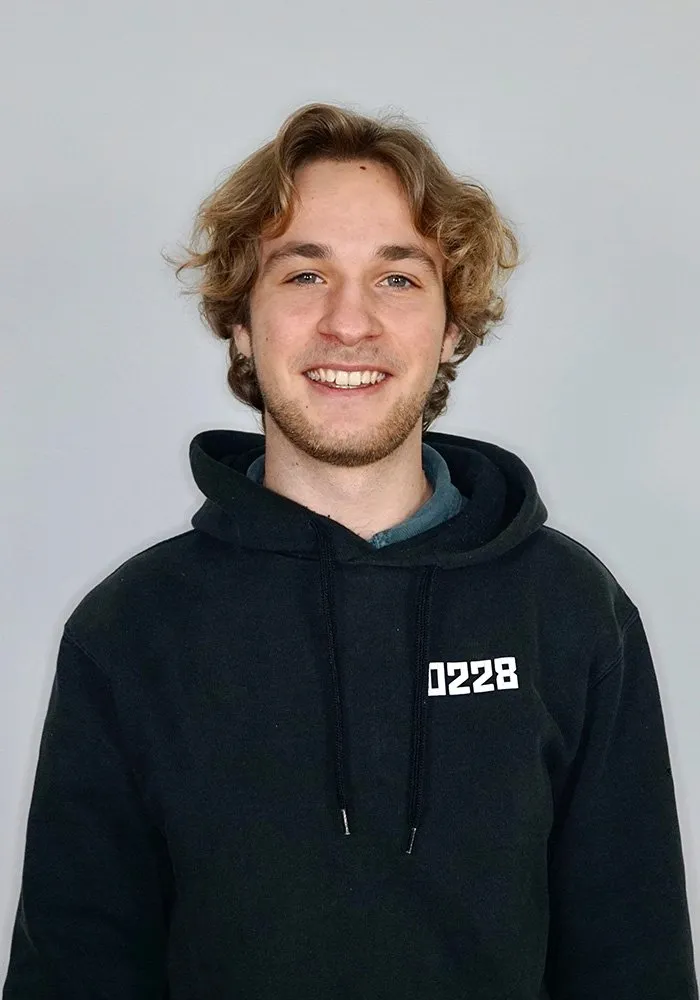
Konstantin Auwaerter
Intern
January 2023 - March 2023
Since a six-month stay in Morocco in 2019, I have been enthusiastic about mint tea with sweet pastries and trying to find my way around the Arabic language. In my studies, I mostly move between postcolonialism, politics, and pop culture in the WANA region. As an intern, I was part of the Aswatona team and got to help prepare and run the first online workshop in 2023. It was great to bring together so many people with their different facets and strengths. I still feel very connected to the entire team with its warm, attentive nature and to the association.
